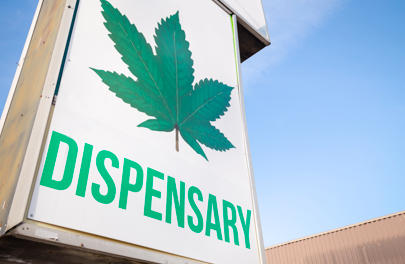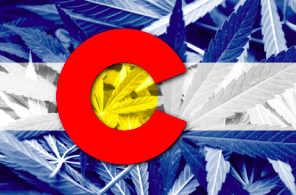Recreational and medicinal use of marijuana is legal in many states in the USA, including Colorado. Cannabis and marijuana-infused products legalization in Colorado has resulted in many weed lovers heading to this state for vacations.
However, legalization does not mean there are no rules regarding the cultivation, possession, distribution, and consumption of this plant. Whether you are a resident or a visitor, you have to abide by the regulatory laws.
Amending Colorado Marijuana Laws
Medical use of Cannabis in Colorado was legalized in 2000, while recreational use became law in 2012. Amendment 20 of 2000 allowed medical use of marijuana in the state by patients with written medical proof. This law passed with 54% of the votes cast.
The Colorado Amendment 64 of 2012 paved the way for the recreational use of marijuana, but with a set of laws. Licensing of cannabis dispensaries started in 2014, and since then, cannabis tourism has been booming in Colorado.
Colorado Weed and Dispensary Laws
As mentioned, anyone involved in the handling and consumption of marijuana in Colorado must operate according to the set laws. Breach of any of these is punishable by fine and or jail term as per the offense committed. That applies to both residents and visitors. But what are these governing laws?
Marijuana possession laws
Both residents and visitors of 21 years of age and above have the legal right to possess cannabis flower and infused products in Colorado. However, there are rules regarding the quantity of these products that you can have at any given time. But before you possess any weed and its related product in this state, you will have to produce a government-issued ID, a driver’s license, or passport as proof of age.
You may possess recreational marijuana of up to 1 ounce at a time. You can have double this amount for medicinal marijuana but need a medical card issued only to state-registered residents.
Marijuana purchasing limits
Before 2016, visitors to Colorado were allowed to only purchase 7 grams or less while residents were permitted to buy up to 28 grams. After the change, anyone can buy 28 grams of marijuana provided he or she is 21 years old or and above, but this is limited to one visit per day. Patients looking for medicinal marijuana may purchase more than this quantity but with written proof from a qualified physician. Also, remember, purchasing cannabis and its products from unlicensed persons or facilities is illegal.
Transporting and exporting marijuana
You are allowed to transport your marijuana package around the state but in a closed container. However, exporting the same back to your home state is illegal. The Denver international airport does not allow marijuana on the premises or in luggage. The same applies to other airports. Importing cannabis into the state of Colorado is also illegal.
Mailing the package is also not a good idea as the postal services check and seize any suspected package. Do not just give the DEA a reason to crack you down.
There are also laws regarding the delivery of marijuana, whether for recreation or medicinal purposes. Different towns have to opt-in for these delivery services, and currently, many have not taken their side.
Marijuana consumption laws
The legalization of cannabis in Colorado does not mean you will be just consuming it anyhow. There are prohibited places and allowed areas where you can comfortably enjoy it. According to the law, you are not supposed to consume weed in transportation facilities, schools, concert halls, amusement parks, playgrounds, sports venues, rooftop cafes, etc. You are prohibited from smoking or using marijuana in any way in all indoor public places.
However, there are designated places where you can consume cannabis without worries. These licensed venues are specific and can be restaurants, hotels, outdoor spots, and many others. Please ask to be sure that you are permitted to smoke in those areas. All Colorado residents are legally allowed to use marijuana at the comfort of their homes or rented houses, provided there are no smoking restrictions.
Marijuana is still illegal at the federal level. That means you should not consume it on any federal property for whatever reason. Breach of this law is punishable by a one-year jail term and a fine of not less than $1,000 for the first offense. Repeated offenses attract more severe punishments.
Cannabis cultivation laws
Colorado residents of 21 years of age and above are allowed to grow cannabis, but that should be done according to the laws. The law only permits up to 6 plants, three of which can be at the flowering stage for recreational use. Medical patients can grow a maximum of 12 plants at home, regardless of the number of people in the household.
Caregivers should submit the location details where each plant is grown along with the patient’s registration number. If a patient has to grow more plants as recommended by the physician, the patient details must be forwarded to the CDOR.
Homebound patients who wish to appoint a caregiver to handle the cultivation and transportation of the plants must submit their registration numbers. Other details that must also be provided include the number of plants and maximum quantity the caregiver is permitted to transport at any given time.
Driving under the influence of cannabis
There is a new DUI law in Colorado regarding the amount of THC in blood when driving. A maximum limit of 5 nanograms of THC per milliliter of blood is considered legal. Anything more than this limit is a breach of law, and you can be convicted.
Dispensary Laws
You can purchase medicinal or recreational marijuana from state-licensed dispensaries. But if you cannot make the purchase yourself as the patient, appoint a caregiver to transact on your behalf. You can buy from dispensaries that specifically sell to registered patients, but that is your choice.
Marijuana and its related products are taxed according to the state sales law. Retailers pay a 15% tax that is included in the purchase price. Additionally, wholesalers have to pay a 15% excise tax on any amount accrued from the first sale to either a retailer or processor.
Dispensaries are required by law to operate from 8 am to midnight, but different towns are allowed to set their own rules. For instance, dispensaries in Denver close at 10 pm.
Dispensaries are also limited to the quantity they can sell to marijuana users. This restricts you to buy only one ounce of the flower, which is equivalent to 8 grams of concentrates and 800mg of edibles. Fortunately, you can request the store attendant to do calculations and sell you a fraction of an ounce of the flower and a few grams of concentrate or edibles.
- Summary of marijuana dispensary laws and regulations
- Attendants must always have their badges on while on the premises
- Patients must produce all the required documents that should be processed.
- All the patients’ medical records must be filed
- Operation hours are from 8 am to midnight
- Non-patients to wait at the designated areas
- Only persons of 21 years of age and above are offered services for recreational marijuana.
- Medical marijuana users must produce a doctor’s recommendation, state fee, and medical card.
- Patients only buy the cannabis products for themselves and not anyone else
- All marijuana products leaving the store should be in a state-approved, child-resistant packaging
- Every customer served should be issued with a receipt
Colorado Medical Marijuana Registry
There is a program in Colorado that identifies qualifying patients and issues them with an ID card. The card allows them to cultivate, possess, and consume marijuana. This service is only available to the state residents, renewed yearly by submitting an updated certificate from a qualified physician. Both patients and designated caregivers are each issued an ID card if they qualify.
What are the qualifying conditions?
- Cancer
- Glaucoma
- HIV/AIDS
- Autism spectrum disorder
- Cachexia, or wasting syndrome
- Post-traumatic stress disorder (PTSD)
- Seizures
- Severe nausea
- Epilepsy and other Seizure Disorders
- Severe pain
- Persistent muscle spasms
- Any other condition approved by a qualified physician
Marijuana lab testing
All the cannabis grown and harvested in Colorado state needs to meet set standards. As a result, CDOR requires that the following tests be carried out:
- Cannabinoid potency
- Chemicals
- Mycotoxins
- Microbes (bacteria and fungi)
- Residual solvents
- Metals
- Pesticides



















